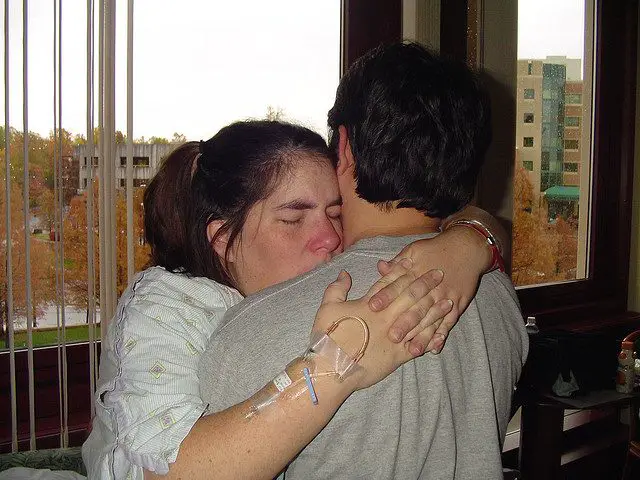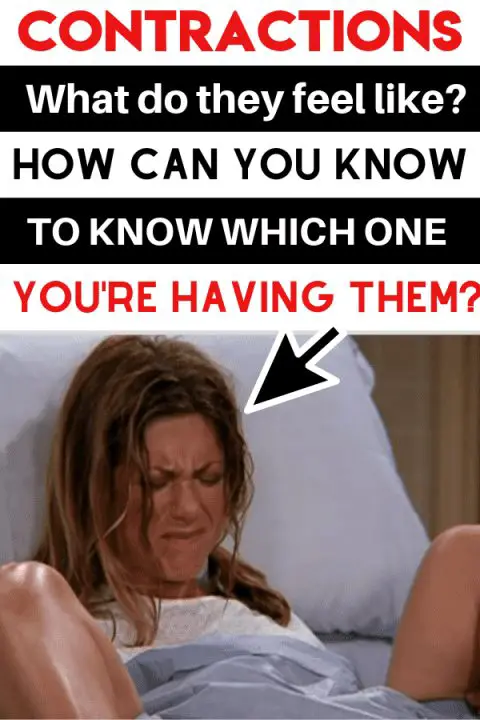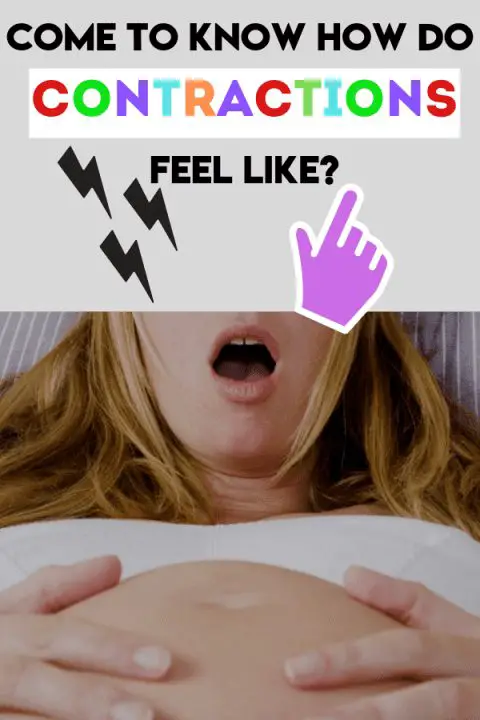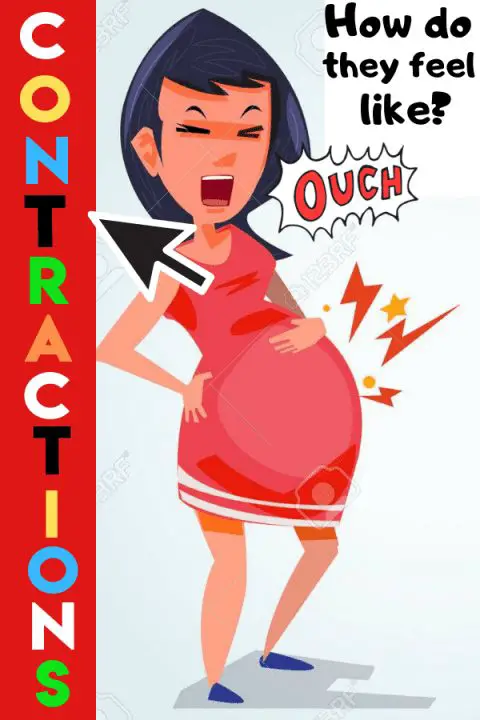Every mom-to-be has worried about the childbirth process. You’re pregnant for the first time! Obviously, you want to know How many types of labor contractions are there? How long do early contractions last? Is tightening to the stomach a sign of labor?
Expected moms often wonder if labor contractions are actually as painful as they are shown in the movies! The questioning is certain and there are valid answers we are going to discuss further.
Firstly, never ever let it skip your mind that you’re going to have your baby in your arms after the delivery, and trust me the pain is worth it! Only these contractions can reward you, your baby.
You have crossed many hurdles of pregnancy and labor contractions is the last stage to cross. After months of pampering and taking care, it’s almost time for the big day, you can also name it the B-day! Don’t think about what happened with your body after the birth process? Only to concentrate on your contractions.

How Do You know Contractions are started?
Contractions usually start when you go in labor A.K.A when your date is close. It’s difficult to describe, But if taking an overall conclusion, Contractions mostly start like the regular menstrual cramps then turn into one hellish experience.
Labor contractions are often coming in the form of the waves because their intensity slowly rises and reaches the peak and again goes down.
Signs for Labor contractions:-
- feel like cramps in the lower belly
- include a dull back pain
- you feel your belly hard like a rock
- radiate from back to the front of the core
Simply, contractions mean the “pain” but these are productive and demanding. During my first delivery, contractions used to make me feel very uncomfortable, for hours… even for days before it finally registered with me. In my first delivery, my contraction lasted with me for 7 days.
My Journey
I had a giant watermelon of a uterus in my first as well in my second pregnancy. Touchwood, I had healthy babies(above 5kg weight), and still surprisingly both my deliveries were natural.
The primary objective is to motivate all you brave mothers that nothing is there to fear. Pregnancy is a very natural process and I sure am including the contractions, tears, labor pain, vagina birth, breastfeeding, sore nipples, Milk blister, and milk ducts, etc, in this whole natural dilemma, haha!
Back on the topic, in my first pregnancy, my contractions did not allow me to take proper rest and sleep for hours. I would feel these nagging contractions every hour, they would come like a click and go down moments later, say a minute or so. I used to take them like my alarms, reminding me that I’m soon going to be a mom with my baby in my arms safe and sound!
How do contractions work?
Contractions are the first sign during pregnancy that your struggle has come to an end and you are going to be a mommy any moment.
When I felt the real contractions and not the usual type, these types were not the one who would come for a minute and go, these contractions started to tighten at the lower zone of my vagina and would continue to tighten whole my uterus.
To get the cervix to dilate, the pain was at the peak and the kind I had never experienced before. All I could remember from the time was that… I would cry out loud because of the pain for God knows how long!
I was not in my control, I was quarreling with my contractions. I would talk gibberish and gibberish on all along with my contractions.
But no one could understand me, not even myself, because the pain was way too awful for me to utter a single understandable word. The tightening started to compress downward my stomach.
There is no position you can adapt to comfy yourself when contractions hit you. Every woman hits active labor at a different point. These contractions are the strong ones that help you push the baby into the right position and to help you pop out your baby.

All women go through different types of contractions. How a woman experiences and feels these depends upon her pain threshold.
Types of contractions
What do contractions feel like? it depends. There are several types of contractions and not all are related to labor pain. Below is a list, you can relate them to that of your contractions.
Braxton Hicks contractions
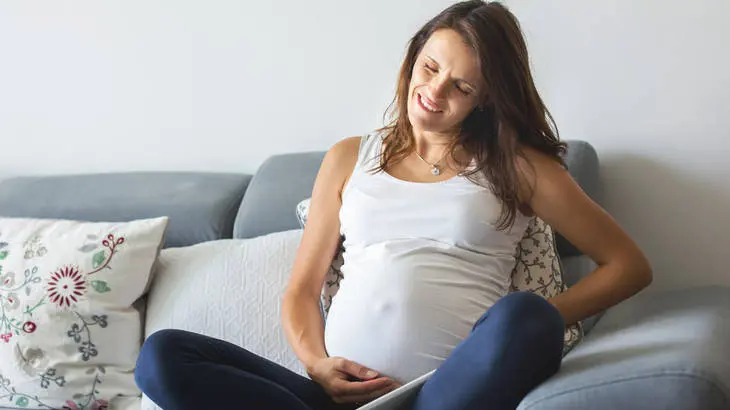
Braxton contractions are also known as False labor contractions. Mid-term of your pregnancy, you may notice that your uterus tightens, totally uncalled.
If you place your hands on your bare womb you’ll feel exactly how hard your baby bump is!
This tightening is a kind of Braxton hick contraction that lasts for a few minutes but causes less discomfort to you. During these contractions, you feel your womb muscles tightening, a few minutes every once in a while ever day.
You may suffer from these contractions, around 16 to 17 weeks of your pregnancy or earlier. The more your baby bump gets bigger, the more you feel the tightening of your womb muscles. Your uterus muscles contracting gently on and off all the time without you realizing it.
1. What do Braxton Hicks contractions do for you?
These contractions are a sign that your womb is keeping your muscles fibers toned which in return is going to come handy during the labor pain
As time passes and your pregnancy progresses, these Hicks contractions may become more intense and painful. Braxton Hicks are said to be practice contractions, aka “false labor pain’.
How do these contractions feel like
These contractions feel like cramps, one like menstrual cramps which tighten up your baby bump. But there is nothing to freak out. These contractions don’t have a particular pattern and are random.
However, if these occur regularly, with increasing intensity and frequency, then just call your doctor or your midwife and get their help.
Before you call your doctor you may try these techniques to calm down the contractions:
- Drink plenty of water
- change positions.
- Stop what you’re doing and try to take full rest.
2. Preterm contractions
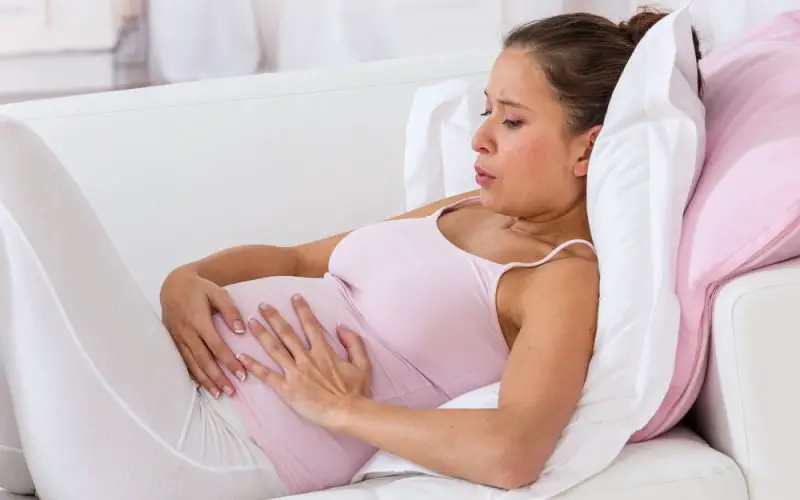
These are also known as preterm labor. These occur when your body starts to get ready for your baby’s birth before the due date. These can start three to four weeks before the due date. These contractions may lead to an early birth.
Preterm contractions can occur at regular intervals before the 37th week of pregnancy. These also may associate with cervical changes when the cervix thins out and when the cervix opens up if any woman is in preterm labor.
But nothing to worry, doctors can do their best to delay an early delivery. Your baby has fewer problems if he takes birth before the due date as he grows well inside you.
You must know the symptoms of preterm contractions, that can make you aware of it and you can stop them with the help of your midwife or doctor without losing time and your energy.
Symptoms of preterm contractions
If your contraction cramps continue in your backbone and you are not able to ease yourself down even after you change your position or you are not able to make yourself comfortable, whatsoever.
These contractions last for 10 to 15 minutes or more. If you feel menstrual cramps in your lower abdomen or feel the gastric pain, know it’s a preterm contraction.
It may start with diarrhea, a dull backache with pressure on your pelvis and in your abdomen.
- you have to cramp in your abdomen.
- Unusual fluid leaking from the vagina.
- If you have Flu-like symptoms such as nausea vomiting or diarrhea. Immediately call your doctor.
- If these contractions increase pressure in your pelvis or vagina.
- If you have a heavy vagina discharge.
- If light vaginal bleeding.
If you have any unusual changes or pain in your back, these may be a sign of preterm contractions… so please call your doctor and fix your problem and get appropriate treatment.
3. Early Labor contractions

Early labor contractions are also known as the latent phase contractions. These contractions hit at regular intervals in the initial stage of labor.
Early labor pain is the signs and symptoms that labor is imminent.
In early labor or latent phase labor, you might feel tightening of your womb muscles which last for at least 1 to 2 minutes. These are organized type contractions which come at regular interval of time.
How long these contractions stay
These contractions may start spaced far apart, but if you are near to the end, they would be close to five minutes. During these contractions, your cervix begins to open and your vagina may discharge mucous with the light bloody show.
Your water may also break and you may face a small or a huge fluid gush out from your vagina.
How do you come to know about early labor
- If it is growing more intense
- you’re following a regular contractions pattern
- These contractions lasting longer
- Becoming closer together
These all symptoms are the signs for you to head the hospital or to your birth center.
4. Active Labor contractions and transitions

Contractions leading all the way to transitions are more and more intense than you what you experience in the early stages.
During this stage of labor, your cervix opens all the way from 4… to 10 cm, that means it is the time you push your baby out of your womb.
You may feel contractions wrapping your body badly. They may start from your back and move around the torso of your abdomen. You may feel pain and cramps in your legs, too.
If you feel these types of contractions, know, you’re in active labor, pick your mobile and call out your doctor and head to the hospital. Active labor pain remains for at least 45 to 60 seconds, 3 to 5 minutes of rest in between and then starts all over.
Related Posts:-
How do these contractions feel
These types of contractions are more frequent than the active labor contractions, they are needed to push out your baby out of your vagina. These contractions are the hardest part of labor.
Back contractions:
Labor is uncomfortable enough. But the reality is that without contractions, we can’t get our precious one. The final stage of pregnancy ends up with Back contractions only.
I experienced back contractions with my first baby but thankfully not with my second baby. My both babies took birth in the night. These types of contractions are so weird and painful. If you’re pregnant then get ready to deal with all the possible pain of contractions.
Back labor pain feels like intense lower back pain. Many mothers explained back labor pain as contractions that peak right away instead of easing in and out.
For some mothers, it is horrid, terrible, intense pain and they never want to experience it again in their next pregnancy. I say I understand.
What do these contractions tell us
When I had these back labor pain, I felt like my back was going to break down any second. The most agreed reason for back contractions is the baby’s position in the womb.
When the babyfaces up, mothers may experience back labor pain as the baby’s head is pushing itself against the mother’s spine. But this theory does not fit for all the pregnant mommies.
The main reasons for back labor contractions are:
Mothers with a short torso can be a problem for the baby birth is too long for them. The babyfaces difficulties while turning or trying to get in the right position into the pelvis properly, this may cause mothers to experience back contractions.
If a pregnant mother has tight muscles and ligaments, the situation can make it difficult for the baby to get into a good position.
If you had any back injury, you may experience back labor contraction during pregnancy.
How to prevent back contractions before your doctor has arrived
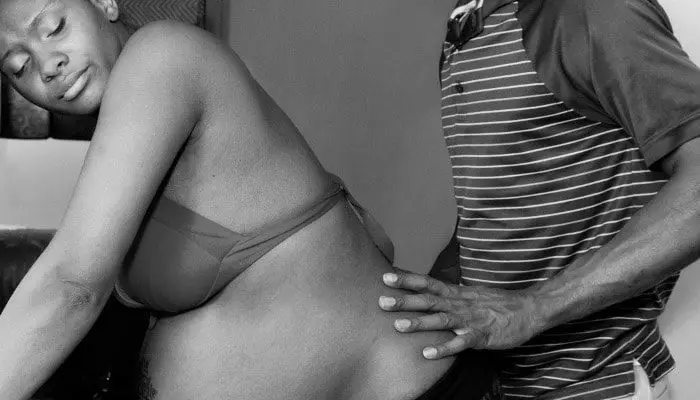
The only way to get rid of back contractions is to keep your pelvis balanced and aligned throughout the pregnancy. Only this can help you to feel better, this way your baby is in the best position in your uterus, too.
Staying flexible, aligned and in shape during pregnancy will not only help you feel better but would help you get ready for labor pain and would also reduce your back labor contractions.
You can try these also:-
- Hot water bottle on the lower back
- Backpressure applied by your partner or doula
- labor massage with hands or DIY tennis ball massager etc.
- Get a good shower often.
ENDPOINT!
Overall back labor contractions are not the worst thing to be afraid of. Some pregnant mommas with a tilted uterus get back labor contractions, too. But with their courage and strong desire of becoming a mother beats all sort of contractions.
So now, it’s your turn. Be positive, think positive, eat positive, make a positive environment to defeat any type of hurdle during your pregnancy and complete your journey by getting your precious one. Please comment on your experience to know other mothers, might get help. Best of luck and
TAKE CARE
Save these graphics below to pin this post:
